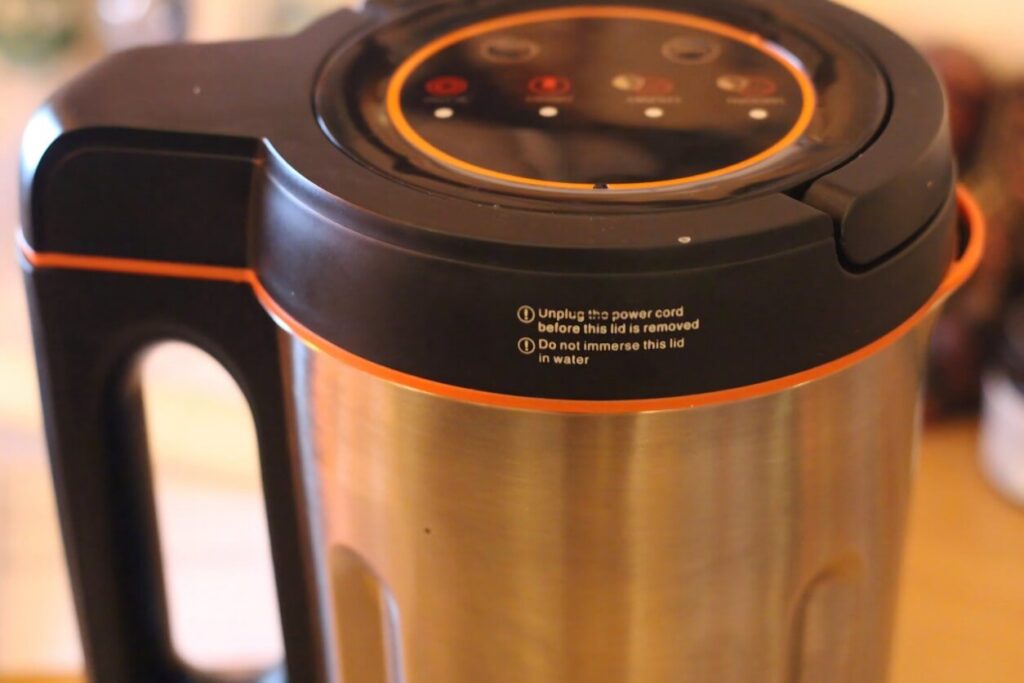Table of Contents
ToggleIntroduction of Electric Soup Maker
Electric soup makers have become increasingly popular in modern kitchens, offering a convenient way to prepare delicious, homemade soups with minimal effort. These innovative appliances combine blending and cooking functions, allowing users to create a variety of soups in one device, from silky smooth purees to hearty stews. As energy efficiency becomes a key consideration for many consumers, understanding the electricity usage of electric soup makers is essential. This article delves into the energy consumption of electric soup makers, their benefits, and common consumer concerns regarding their energy efficiency.
How Much Electricity Does an Electric Soup Maker Use?
The electricity consumption of an electric soup maker can vary based on several factors. Most models typically consume between 800 to 1200 watts during operation, depending on the specific features and settings used. For example, a basic model may use around 800 watts, while more advanced models with multiple functions might reach up to 1200 watts.
Factors Influencing Energy Consumption
Several factors influence the energy consumption of an electric soup maker:
- Cooking Time: Longer cooking times naturally result in higher electricity usage. Most soup makers have preset programs that optimize cooking times for different recipes, allowing for more efficient energy use.
- Ingredient Type: Harder ingredients, such as root vegetables, may require more blending and cooking time, thereby increasing energy consumption.
- Model Specifications: The wattage of the soup maker and its design can also affect energy efficiency. Higher wattage doesn’t always translate to better performance, so choosing a well-reviewed model can be crucial.
Comparison with Other Kitchen Appliances
When compared to other kitchen appliances, electric soup makers are generally more energy-efficient. For instance, traditional stovetops can use between 1000 to 3000 watts, while ovens often consume even more energy. This makes electric soup makers a more economical choice for soup preparation.
Tips for Reducing Energy Usage
To further reduce energy usage, consider these tips:
- Batch Cooking: Use the soup maker for larger batches to maximize efficiency and minimize energy use per serving.
- Keep the Lid Closed: This helps maintain heat and reduces cooking time.
- Select Shorter Cooking Times: Many recipes can be adapted to require less cooking time without compromising taste.
Benefits of Using an Electric Soup Maker
Electric soup makers offer several advantages beyond energy efficiency.
Time-Saving
One of the most significant benefits is time-saving. Electric soup makers can prepare soups in as little as 20 minutes, drastically reducing the time you’d typically spend on meal prep. With the ability to set the machine and walk away, you can multitask without worrying about stirring or monitoring the cooking process.
Healthy Cooking
Moreover, these appliances promote healthy cooking. By using fresh ingredients and controlling the amount of salt and fat, you can create nutritious soups tailored to your dietary needs. Electric soup makers often come with recipe books or apps that encourage users to experiment with various ingredients, enhancing your culinary skills and promoting a healthy diet.
Environmental Impact
Additionally, electric soup makers can have a positive environmental impact. By consuming less energy and reducing food waste through portion control, you contribute to a more sustainable kitchen. Making your soup from scratch means less reliance on packaged goods, which often come with excess packaging and preservatives.
Consumer Concerns About Energy Usage
Despite their benefits, consumers often have concerns regarding the energy usage of electric soup makers.
Common Misconceptions
One common misconception is that they consume excessive amounts of electricity compared to other kitchen appliances. In reality, when used efficiently, electric soup makers can be quite economical. Many users find that the overall energy costs associated with using a soup maker are lower than those incurred by preparing soups on the stovetop.
Ways to Make Electric Soup Makers More Energy Efficient
To enhance energy efficiency, consider the following practices:
- Using Seasonal Produce: Opt for seasonal ingredients, which typically require less energy for transportation and storage, thereby lowering your overall carbon footprint.
- Maintaining the Appliance: Regular cleaning and maintenance of the soup maker ensure it operates efficiently, helping to avoid unnecessary energy consumption.
- Choosing Energy-Efficient Models: Look for soup makers with energy-efficient features, such as programmable settings, automatic shut-off options, and energy star ratings.
Conclusion of Electric Soup Maker
In summary, electric soup makers are a practical addition to any kitchen, combining convenience, health benefits, and energy efficiency. While they do consume electricity, their usage is generally lower compared to traditional cooking methods. By adopting energy-saving practices and understanding the capabilities of these appliances, you can enjoy delicious soups without a significant impact on your energy bill. Ultimately, soup makers offer a sustainable cooking solution that aligns with modern lifestyle demands.
Frequently Asked Questions of Electric Soup Maker
- Does soup maker use a lot of electricity compared to other kitchen appliances?
Soup maker typically consumes less electricity than stovetops or ovens, making them a more energy-efficient option. - Are there ways to reduce the energy consumption of a soup maker?
Yes, using larger batches, keeping the lid closed during cooking, and selecting shorter cooking times can help reduce energy consumption. - How does using an electric soup maker impact the environment?
By consuming less energy and allowing for healthier meal preparation, soup makers can have a positive environmental impact, contributing to sustainable cooking practices.
By understanding the energy consumption of electric soup makers and taking advantage of their benefits, consumers can make informed choices that support both their culinary needs and environmental goals.

